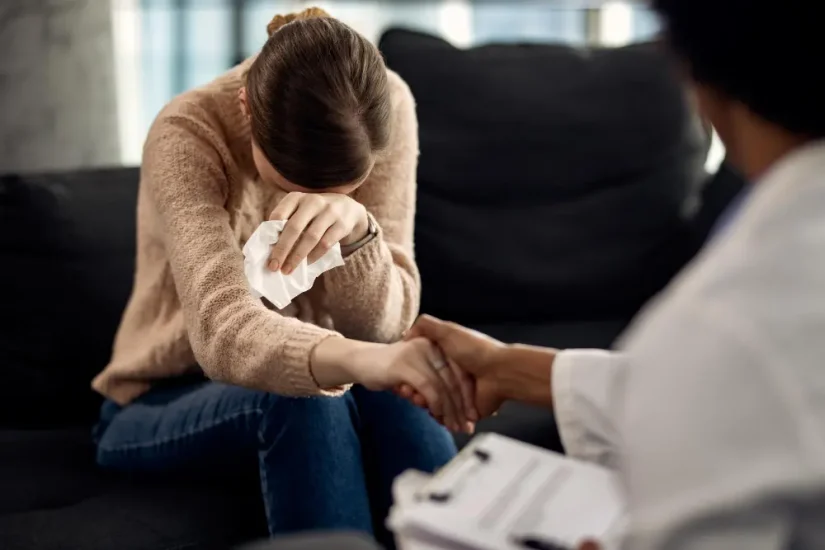- June 25, 2023
- by Harshita Bajaj
- PTSD, Trauma
Trauma is an extremely difficult phase in anyone’s life. It can be difficult to get out of trauma and lead a normal life for those who have gone through something that is violent and so traumatizing. It takes time to feel better and lead a life that can make sense to them.
The thing about trauma is that it does not discriminate between people. Bad situations can always lead to trauma. If you do not have the correct capacity or ways to deal with it, it can be physically and mentally taxing. Hence, recovering from that trauma is extremely important for your well-being.
Recover safely from your trauma
Trauma recovery in itself can be painful. At times, the process of recovery is much more painful and difficult than the actual event or trauma in itself. Safe trauma recovery allows for a safe space wherein the trauma is processed and dealt with and does not cause intensification of symptoms but helps in subsiding them.
Leading trauma theorists through many years of research have come up with some tips and tricks that can help you recover from trauma. Researchers and writers such as Babette Rothschild have written books that empower you with strategies that allow for safe trauma recovery.
The goal of Trauma Recovery
According to Rothschild, the only goal of trauma recovery is to improve the quality of life of the person. The processing of traumatic events in itself can be therapeutic, but not everyone can lead a normal life while doing so. So, how do you recover from trauma?
Ways to recover from Trauma
- Practice Mindfulness : Mindfulness is a practice that is deeply rooted in ancient Indian and Eastern practices. Mindfulness is a practice that is deeply rooted in ancient Eastern and Indian practices. Recently, people have started practicing mindfulness as a part of their daily routine. It is something that can be extremely helpful for trauma survivors or those who have PTSD. Mindfulness allows us to be present in the current moment and act as a reminder that the present moment is safe and also that you have the ability to feel OK. Simple meditation techniques can help you understand your unique self and be an inspiration to discover more about yourself.
- Recognize your survival- You Made It! : Recognizing your survival is extremely important in dealing with trauma. Knowing that the trauma has actually ended and you survived it is a great feeling of winning. The more wins you have, the more you realize that you can win this trauma.
- Remembering is not required : A lot of trauma therapy or therapist try to deal with trauma by forcing the person to remember each and every detail of the trauma. However, remembering can be extremely disorienting and unhelpful for the person. In such cases, it is important that you recognize that remembering is not required. It is not important that you remember each and every detail of your trauma to heal from it. Hence, letting it go and realizing that it is OK to not remember is a key asset that helps you win.
- Stop flashbacks : Though flashbacks are an important symptom of any traumatic disorder, they are so intense that it makes you feel as if you are living the trauma again. The auditory, visual, and physical responses your body makes make you feel like you are in that trauma again. However, in such cases, you have to remember that flashbacks are nothing but memories. As someone with trauma, it is important that you are empowered to believe that flashbacks are just memories and are not going to harm you in the present situation. Stopping your flashbacks is a key way to which we can win over trauma.
- Recognize and Forgive your limitations : It is important that we also recognize and forgive our limitations when dealing with trauma and its recovery. One of the most important things that happen post-trauma is the inability to forgive yourself because we blame ourselves for having frozen in the moment or not being in control of the situation and not doing the correct thing- this often leads to a lot of self-blaming. Here Rothschild mentions how self-forgiveness is an extremely important part of trauma recovery. Forgiving yourself and knowing that you couldn’t have done anything and your body reacted the way it thought best is very, very important.
- Share your shame : People who have any trauma disorder usually isolate themselves and do not seek support or establish connections. However, a key to recovery is sharing your shame, moving out of the isolation, building strong connections, and also sharing how you feel. If you share your trauma with people who have gone through the same thing, it helps you know that you are not alone and that there there are a lot more people who have been through the same and can help you win this, together.
- Take it one step at a time : Any recovery process is not just one leap forward, it is a slow process that you should be taking with one careful step at a time. There is no need to hurry the recovery process. There is no need to want to get better immediately, even though it might feel like the need of the hour. It is important that every day you make little effort to move towards a healed self rather than just jumping through big hoops all at once.
- Time is a powerful healer : One thing that you also have to remember is that time is a very powerful healer. Over time trauma will fade, over time memories will go away, and over time things will get better. So trusting in the magic of time is extremely important. It will help you deal with your healing process and accept that this might take time and you will be okay with that.
Though trauma is something that will need active steps from your side to heal from, centers such as North America Behavioral Health Services have excellent programs that can help you safely recover from trauma. NABHS will equip you with the following to aid your recovery process-
- Safe space to talk about your trauma.
- Do activities that make you feel better and heal faster.
- Work with professionals with more than 10+ years of experience in trauma therapy.
- Learn self- empowering strategies that help you deal with your trauma.
- Build and establish strong social and emotional support for recovery.
So, begin your safe trauma recovery process today and choose to lead a healed life.
















